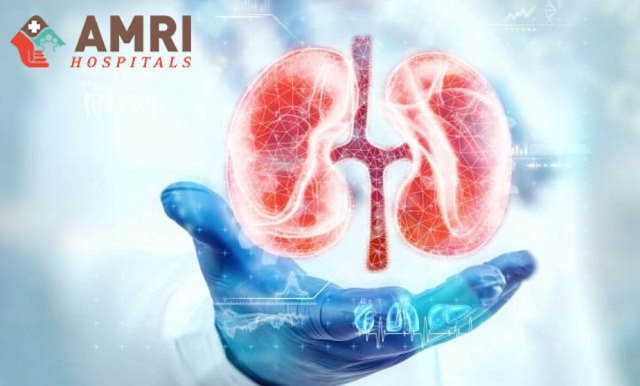All You Need to Know About Nephrology and Nephrologists?
Kidney problems are increasing worldwide, as millions of people are being diagnosed with chronic kidney disease (CKD) or kidney injury. Even existing health problems, such as obesity, diabetes, high blood pressure, and heart disease, can cause damage to the kidneys.
Likewise, kidney damage can lead to high blood pressure and heart disease even if you were not having any of these health issues before. Chronic kidney disease can also lead to osteoporosis, anemia, an irregular heartbeat, and a weakened immune system. This is where you need to consult a professional and experienced Nephrology Doctor in Kolkata.
But what does the term nephrology mean? Well, it is the branch of medicine dealing with issues related to kidneys. And, nephrologists are specialized doctors who treat kidney-related disorders.
Nephrologists often diagnose kidney issues and suggest appropriate treatment. Let’s find out in detail what a nephrologist does and what it often takes to become this specialized doctor.
What is a Nephrologist?
As mentioned before, a nephrologist specializes in curing disorders related to kidneys. He/she performs various tests to treat conditions associated with kidneys. This is essentially a subspecialty of internal medicine. And, to be a qualified nephrologist, one has to complete a medical degree, along with 2-3 years of fellowship on nephrology.
Hence, they become experienced enough to treat patients dealing with kidney-related health issues. These doctors also work as an individual or in a group to provide the best treatment and care to people. In most cases, they check dialysis units and deal with various cases in a clinic or hospital.
What Medical Conditions Do Nephrologists Treat?
Nephrologists often treat health conditions impacting the kidneys directly or indirectly. Some of these conditions are:
- Chronic or advanced kidney issues
- Kidney infections
- Tubular defects and glomerular conditions like nephrotic syndrome and glomerulonephritis
- Tubulointerstitial kidney diseases
- Functional or structural kidney, urinary, or bladder abnormalities like nephrolithiasis
- Autoimmune conditions related to kidneys
- High blood pressure Vasculitis
- Electrolyte, acid-base, and fluid disturbances or imbalances
- Certain metabolic conditions like diabetes
- Abnormal growths or kidney neoplasms
- Kidney vascular conditions like renal artery stenosis
What Procedures Do Nephrologists Perform?
The nephrologists perform blood tests for treating various kidney conditions. They have complete internal medicine training to do distinct treatments, tests, and procedures to help a patient feel well. They do various tests for diagnosis and monitoring of distinct kidney conditions via blood tests and urine.
Performing various tests can make it convenient for them to understand whether the kidneys are working well or not.
Medical Procedures:
Nephrologists have to do various types of procedures for diagnosing, treating, and monitoring kidney conditions.
All these procedures include:
- Biopsy
- Ultrasound
- CT Scan
- Kidney Transplant
- Hemodialysis
When to See a Nephrologist?
Here are some common symptoms and signs of severe kidney issues that indicate you must see a doctor:
- Reduced urine output related to dehydration
- Swelling in ankles, feet, or legs
- Unexplained confusion, trouble focusing, or memory issues
- Muscle cramps, weakness, or numbness
- Headaches
- Exhaustion during the daytime while facing issues sleeping at night
- Fluid in joints, pain or stiffness
- Itchiness
- Blood in the urine (hematuria)
- Decreased sense of appetite and taste
- Nausea
- Unexplained blood pressure issues
- Unintentional weight loss
If you are facing any of these signs and symptoms, you should consult the top Nephrologist in Kolkata at AMRI Hospitals.
Also, Visit here: Top 7 Things about Orthopedic Surgeons




Comments
Post a Comment